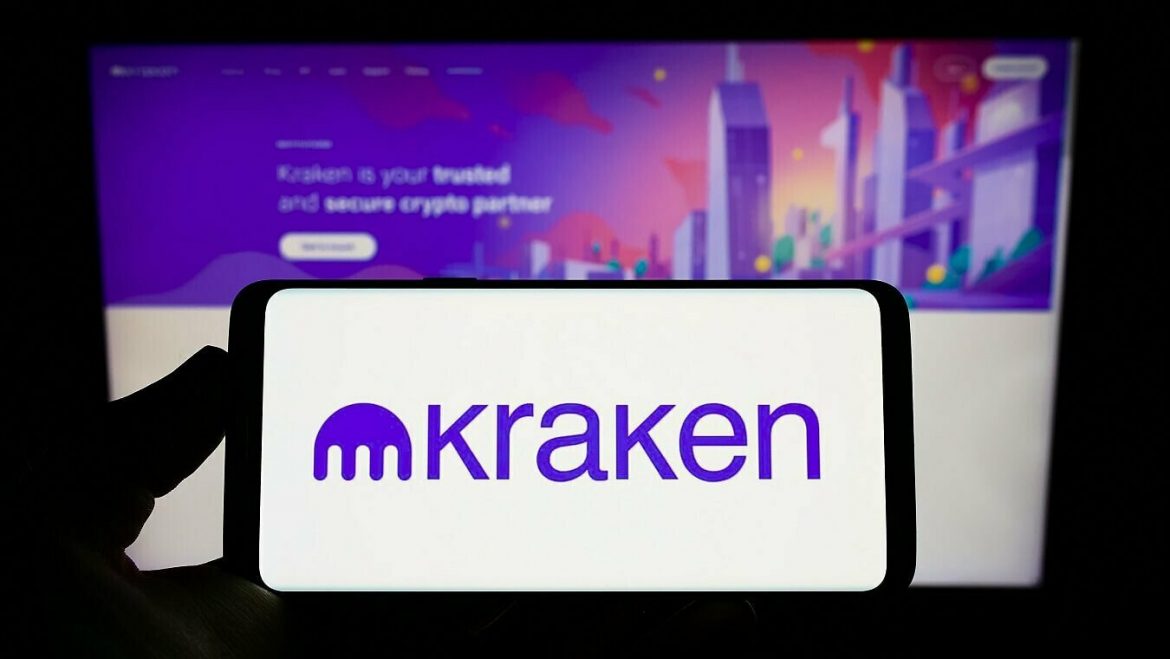Major crypto exchange Kraken has taken a leading position in the Ethereum (ETH) unstaking queue following the blockchain’s latest Shapella upgrade, with a number of market observers suggesting that the exchange’s dominance of the queue could be triggered by Kraken’s recent legal woes.
The Shanghai (Shapella) upgrade is considered a major milestone in Ethereum’s roadmap, as it comprises modifications made to the blockchain’s execution layer (Shanghai upgrade), consensus layer (Capella upgrade), as well as the Engine API. Owing to this, the upgrade allows ETH stakers to withdraw their staked crypto and also any accrued staking rewards.
As of 09:00 a.m. UTC, Kraken was responsible for about 63.2% of the ETH that was waiting for withdrawal. The exchange held a significantly higher share of the total withdrawable ETH than its major competitors, with Coinbase accounting for a stake of 10.8%, and Huobi holding a share of 5.1%, according to data released by blockchain analytics platform Nansen.
Close to ETH 869,000 worth more than $1.8 billion was awaiting withdrawal at that time, bringing Kraken’s share of the crypto north of $1 billion.
Kraken reaches agreement with SEC, eyes expansion
It is noteworthy that Kraken’s legal woes and its row with the U.S. regulator, the Securities and Exchange Commission (SEC), were likely to play a role in the latest development.
Last February, the American exchange reached an agreement with the agency under which Kraken agreed to stop offering staking services or programs to customers based in the U.S. The SEC has accused the platform of failing “to register the offer and sale of their cryptoasset staking-as-a-service program” which the regulator treats as securities. As part of its deal with the agency, Kraken also agreed to pay some $30 million in disgorgement, prejudgment interest, and civil penalties.
At the same time, the U.S. platform is also pursuing plans to launch its own bank, dubbed Kraken Bank. Amid the ongoing banking crisis, Kraken hopes to create the new venture crypto through the Wyoming Special Purpose Depository Institution (SPDI) framework that is designed to allow the new bank to focus on asset custody and safekeeping.
“We’re building a better kind of crypto & Bitcoin bank for our clients,” Kraken said in a recent statement.
“We’re looking into products like deposit accounts in USD and crypto assets (ex. Bitcoin), multiple funding and payments options, institutional custody products (qualified custody for advisors and broker dealers), IRAs and many more,” according to the San Francisco-based exchange.
Major crypto exchange Kraken has taken a leading position in the Ethereum (ETH) unstaking queue following the blockchain’s latest Shapella upgrade, with a number of market observers suggesting that the exchange’s dominance of the queue could be triggered by Kraken’s recent legal woes.
The Shanghai (Shapella) upgrade is considered a major milestone in Ethereum’s roadmap, as it comprises modifications made to the blockchain’s execution layer (Shanghai upgrade), consensus layer (Capella upgrade), as well as the Engine API. Owing to this, the upgrade allows ETH stakers to withdraw their staked crypto and also any accrued staking rewards.
As of 09:00 a.m. UTC, Kraken was responsible for about 63.2% of the ETH that was waiting for withdrawal. The exchange held a significantly higher share of the total withdrawable ETH than its major competitors, with Coinbase accounting for a stake of 10.8%, and Huobi holding a share of 5.1%, according to data released by blockchain analytics platform Nansen.
Close to ETH 869,000 worth more than $1.8 billion was awaiting withdrawal at that time, bringing Kraken’s share of the crypto north of $1 billion.
Kraken reaches agreement with SEC, eyes expansion
It is noteworthy that Kraken’s legal woes and its row with the U.S. regulator, the Securities and Exchange Commission (SEC), were likely to play a role in the latest development.
Last February, the American exchange reached an agreement with the agency under which Kraken agreed to stop offering staking services or programs to customers based in the U.S. The SEC has accused the platform of failing “to register the offer and sale of their cryptoasset staking-as-a-service program” which the regulator treats as securities. As part of its deal with the agency, Kraken also agreed to pay some $30 million in disgorgement, prejudgment interest, and civil penalties.
At the same time, the U.S. platform is also pursuing plans to launch its own bank, dubbed Kraken Bank. Amid the ongoing banking crisis, Kraken hopes to create the new venture crypto through the Wyoming Special Purpose Depository Institution (SPDI) framework that is designed to allow the new bank to focus on asset custody and safekeeping.
“We’re building a better kind of crypto & Bitcoin bank for our clients,” Kraken said in a recent statement.
“We’re looking into products like deposit accounts in USD and crypto assets (ex. Bitcoin), multiple funding and payments options, institutional custody products (qualified custody for advisors and broker dealers), IRAs and many more,” according to the San Francisco-based exchange.
